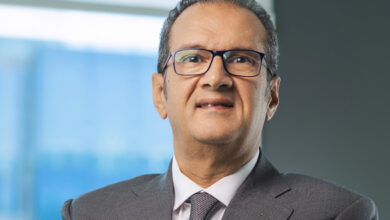IBP: Regulatory framework must be improved to attract investment for Brazilian E&P
By Linda Hsieh, Managing Editor

The geologic potential in Brazil’s pre-salt fields is enormous – estimated by the Industry Federation of the State of Rio de Janeiro to contain 56 billion barrels of oil equivalent. Further, Wood Mackenzie analysis shows that approximately 40% of total recoverable liquids discovered over the past decade came from the Brazilian pre-salt. And yet – last year’s bid round in the country, which put up 266 blocks on offer – attracted little interest. Part of that can likely be attributed to low oil prices, but it is not entirely to blame. In 2015, global investments in E&P fell by 26%, but investments in Brazilian E&P fell by a much higher 42%, said Milton Costa Filho, Secretary General of the Brazilian Petroleum, Gas and Biofuels Institute (IBP). “Our problem lies in the regulatory framework,” he said at the 2016 IADC International Deepwater Drilling Conference on 16 March in Rio de Janeiro.
IBP, which is a nonprofit organization that works to promote a competitive, ethical and socially responsible oil, gas and biofuels industry in Brazil, recently got together with several major operators in the country to analyze what went wrong. “Our diagnosis about the problems of our E&P industry is the regulatory framework,” Mr Filho said. Further, the group has determined that six areas must be improved in order to increase the attractiveness of Brazilian E&P: the local content model; multiplicity of operators; regulatory and tax stability; environmental licensing; a bid rounds calendar; and unitization.
“Regarding the evolution of the local content model, IBP sees the need to improve the current local content regulation,” Mr Filho said. “There are positive signs coming from the government with the new decree that creates incentives instead of punitive measures, but it’s not enough, in our view.”
In the second area – multiplicity of operators – there is also movement in the right direction. A new law is being considered that would remove the requirement for Petrobras to be the sole operator and to have a minimum 30% stake in all new pre-salt projects. If passed, this law would foster more competition for blocks and likely push bids higher as a result, Mr Filho said. He also believes it would push the development of new technologies and of the local goods and services industry, as well as generate more investments and jobs.
The third area is regulatory and tax stability, which is needed in order to attract investors to long-term projects like ones in the pre-salt. One positive development in this area is the recent extension of REPETRO, which exempts the E&P industry from several CAPEX-related taxes. Many good projects would not be viable without REPETRO, Mr Filho said. On the less positive side, however, in late 2015 the state of Rio de Janeiro decided to implement two new taxes. One will create a tax of approximately 2.71 reals per barrel. Another will add approximately 25% on the production of oil and gas in that state, he explained. “This is a killing tax that will create lots of problems for everybody in the country because 75% of the production of oil in Brazil is coming from Rio. There will be lots of problems with new projects that will not be economically viable because of this law.”
On top of these taxes is the environmental licensing process, which Mr Filho called “too slow and with lots of requirements that are not logical for our industry.” He pointed to licensing for the 11th bid round that took place back in May 2013, which has not seen much movement since. “Just recently a couple of seismic licenses were approved by the government, but in fact there is no business without this license,” he said. IBP is now in discussions with the Brazilian Institute of Environment and Renewable Natural Resources (IBAMA) and hopes to establish a more feasible process that will facilitate the faster delivery of these licenses.
IBP is also working with government organizations on the last two areas – a bid rounds calendar and unitization. “We are talking to the National Petroleum Agency and the Ministry of Mines and Energy, trying to show the importance of having a regular calendar of these rounds,” Mr Filho said. “Without new bids, there will be no future in our industry.”
IBP is also urging the Ministry of Mines and Energy to organize the next bidding round for the areas of the unitization process that has to be decided in about 20 blocks in the pre-salt area. “We believe that there are between 8 to 10 billion barrels of proven reserves around these concession areas in these 20 blocks,” Mr Filho said. Good new recently came on this front, he reported, noting that the ministry has created a work group to prepare a report about the unitization process. “In October, we expect to have this study finished and then hope to have the announcement of a new bid round in the beginning of next year.”




